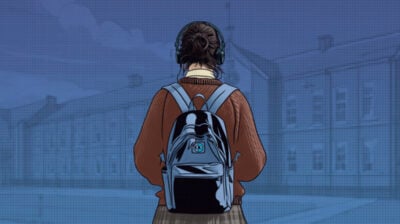Why learning to listen is as important as talking about mental health
There’s been a lot of people talking about mental health recently, but are we ready to listen?

It’s time to stop just asking people to talk about their mental health, and it’s time for us to learn to listen. ‘Talking’ is the powerful keyword echoed by Mental Health Organisations, young adults, artists, Students’ Unions and those who have finally opened up to the fact that it is okay not to feel okay, and opening dialogue that makes living manageable. It is the cornerstone the Samaritans work by, but it doesn’t translate so well when discussion elsewhere is faltering. Talking and listening is all we have to offer as the health system is stumbling behind any real milestone for supporting mental health issues on so many tiers.
Challenging the public and opening our eyes to our stigmatising attitudes were just the first few sparks in the burning issue that will eventually flame into a hopeful and shining light at the end of a dark, and torturing tunnel. We are too complacent with the Please Talk campaign that we are in danger of simply deflecting and shying away from the real issue at hand. Yes, talking and seeking help is crucial – but who’s listening, and what are we doing about it?
Mental health is a deadly, hidden and isolating beast. It creates waves of intense loneliness and suffering and is a widespread experience. The Challenging Times Two Study showed that 1 in 2 (56%) of young Irish adults between the ages of 19 – 24 experience at least one form of a mental disorder, while 1 in 4 experience more than one over their lifetime. This is more than a startling statistic; it’s the real startling reality about our society and us. It is a reality I am firmly a part of.
There are days where I feel paralysed by an overwhelming sense of sadness, lethargy and feelings of impending doom. With no motivation or drive to even get up or eat, I lie in bed with only my sad thoughts about my past, and anxiety of the future for company. I have had thoughts of suicide, but these were long ago. Luckily for me, my days of being mentally and physically exhausted are less frequent.
My feelings of brief and infrequent heaviness will be my passenger in life. I’m like any ‘typical’ young Irish male: outgoing, driven, sociable and happy on the outside, and on the inside too, except for those days when I am weighed down to the ground. I talk to my friends. But at the end of the day, it’s not a real solution. There are people who are completely crippled by their mental health conditions and how can we expect people to be fully prepared to be able to really help them?
Smashing stigmas to help people shake off the embarrassment, shame, fear of labels, and people ‘finding out’ are the best tools for bringing down the wall between seeking help and isolation. This blockade is being torn down, brick by brick, by so many hands that we’re now coming face-to-face with mental health and we don’t know what to say. We are slowly realising that we actually know very little, and we’re becoming increasingly more aware of how little we can do besides nod and passively listen. How can we expect ourselves to readily be capable of empathising and actively supportive rather than sympathising and passively listening? What would you say, or do, if someone told you they had suicidal thoughts and couldn’t face living anymore?
‘Reach Out’, the National Strategy for Action on Suicide (2005 – 2014) found that young Irish men are willing to talk about their problems. So, we’re talking but are we really just talking out loud? The challenges are now in those confiding relationships where the dialogue starts. We lack listening skills as well as talking skills around mental health. There is training available. We have resources such as safeTALK and Applied Suicide Intervention Skills Training (ASIST) equipping the public to intervene and actively listen when suicide has been identified in high-risk individuals. Colleges around the country have Peer Support programmes available, and provide these types of training but it can be too late for a lot of young people who suffer alone and never get to this level of support.
Of course we need to keep talking, but we also need to be able to listen. We can share statuses on social media, and keep talking amongst ourselves but at what point does talking about talking become a circular and redundant approach? We need to educate people early on in school just like we do with physical health, sexual health and first aid. We place the onus on people to take the first step by asking them to please talk but it’s up to us to take the next step and learn to listen.






